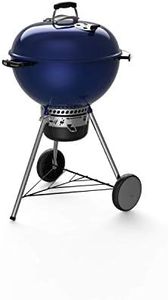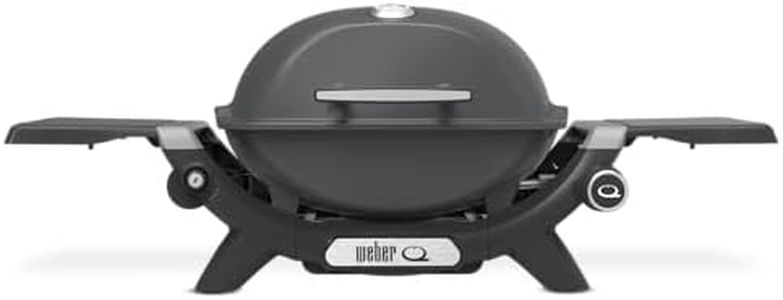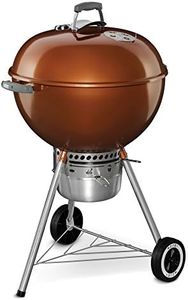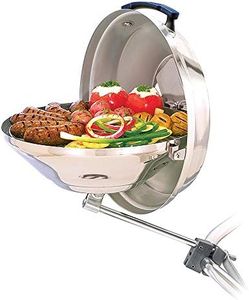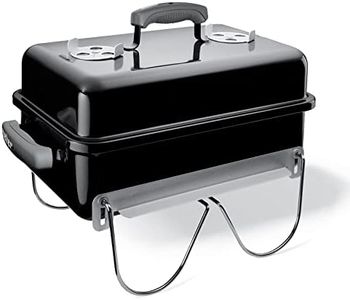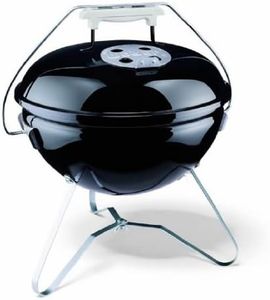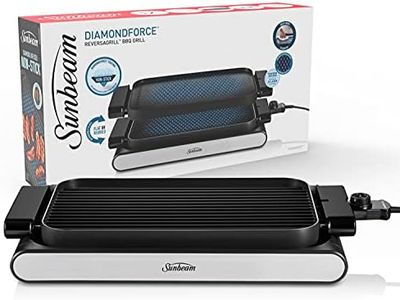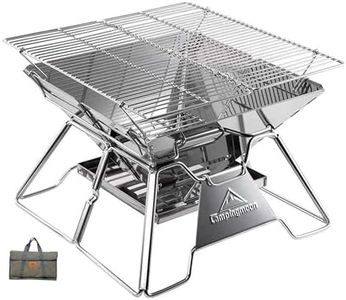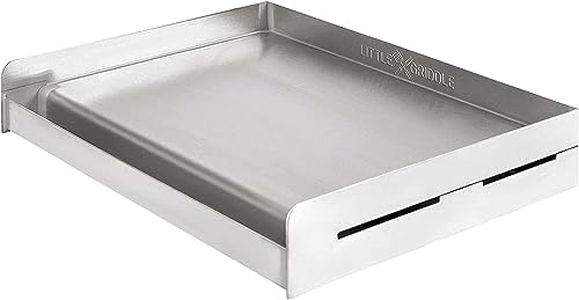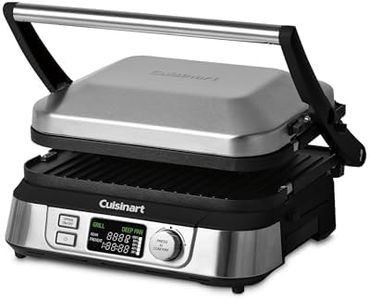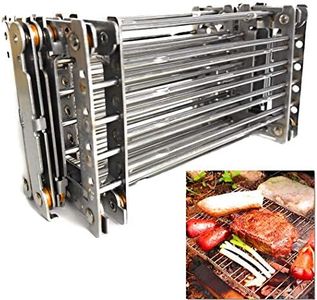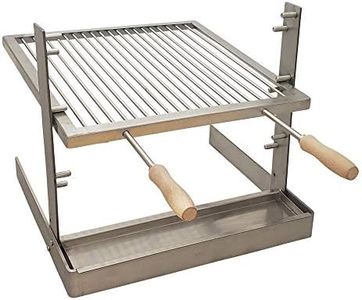We Use CookiesWe use cookies to enhance the security, performance,
functionality and for analytical and promotional activities. By continuing to browse this site you
are agreeing to our privacy policy
10 Best Rv Grills
From leading brands and best sellers available on the web.By clicking on a link to a third party's website, log data is shared with that third party.
Buying Guide for the Best Rv Grills
Choosing the right RV grill can make your outdoor adventures more enjoyable by letting you cook your favorite meals wherever you travel. Since RVs have limited space and power sources, it's important to pick a grill that fits your lifestyle, storage space, and cooking preferences. Think about where and how often you’ll use the grill, how much food you’ll typically cook at once, and your comfort level with different types of grill fuels.Fuel TypeThe fuel type refers to the source of power the grill uses, such as propane, charcoal, or electric. This is important because it affects convenience, cooking speed, and available hookups at campsites. Propane grills are very common for RV use because they are easy to start, quick to heat up, and many RVs have built-in propane hookups. Charcoal grills offer that classic smoky flavor and are simple but require more time to heat and clean. Electric grills need a power source, so you’ll need access to electricity or a generator. Choose the fuel type that fits how and where you plan to cook most often; propane is usually the most practical for most RVers.
Cooking Surface AreaCooking surface area tells you how much food you can grill at one time and is usually measured in square inches. This spec is important because it determines whether you can grill for just yourself, a small family, or a larger group. Smaller surfaces (100-200 square inches) are great for one or two people, while medium-sized surfaces (200-300 square inches) are suitable for small families. If you regularly host larger cookouts, look for something above 300 square inches, though make sure it fits your RV storage. Think about how many people you usually cook for to guide your choice.
PortabilityPortability refers to how easy it is to move and store the grill. This matters because RVers often have limited space and need lightweight, compact options. Some grills are foldable or have detachable legs, making them easy to pack and set up. Ultra-portable grills are light and easy to carry but may have smaller cooking areas. Larger grills might offer more options but can be heavy or bulky. Consider your available storage space and how often you plan to set up and pack away your grill to choose the right level of portability.
Build QualityBuild quality means the materials and craftsmanship used in making the grill. This is important because sturdy grills last longer and withstand outdoor conditions better. Grills made from stainless steel or coated cast iron resist rust and are easier to clean. Lightweight materials like aluminum are good for portability but may not last as long. If you plan to use the grill often or in various weather, prioritize higher build quality; if it's for occasional use, a lighter or less expensive build may be fine.
Ease of CleaningEase of cleaning is about how simple it is to keep the grill tidy and ready for your next use. Removable grates, ash catchers, and drip trays make cleaning much quicker. This is vital for RVers who need to pack up and go quickly, and who want to avoid lingering food smells or messes in small spaces. If you want a hassle-free experience, look for grills with design features that make cleaning easy.
